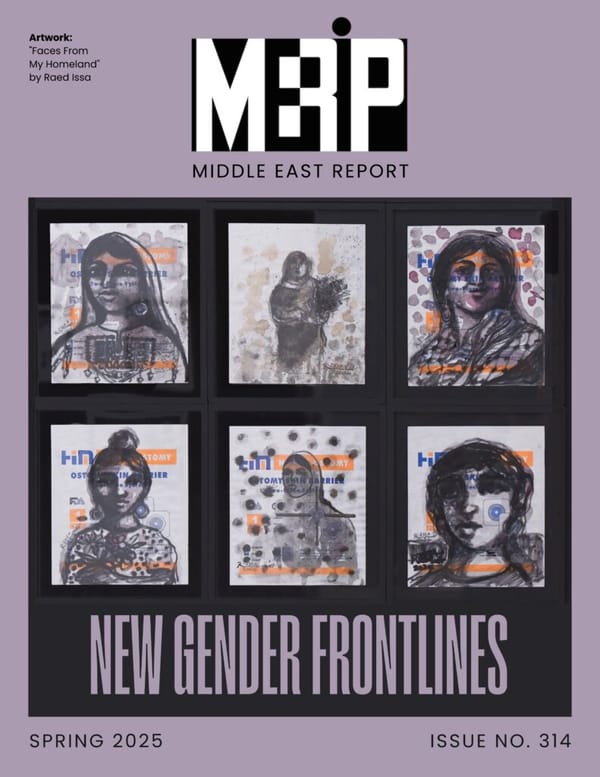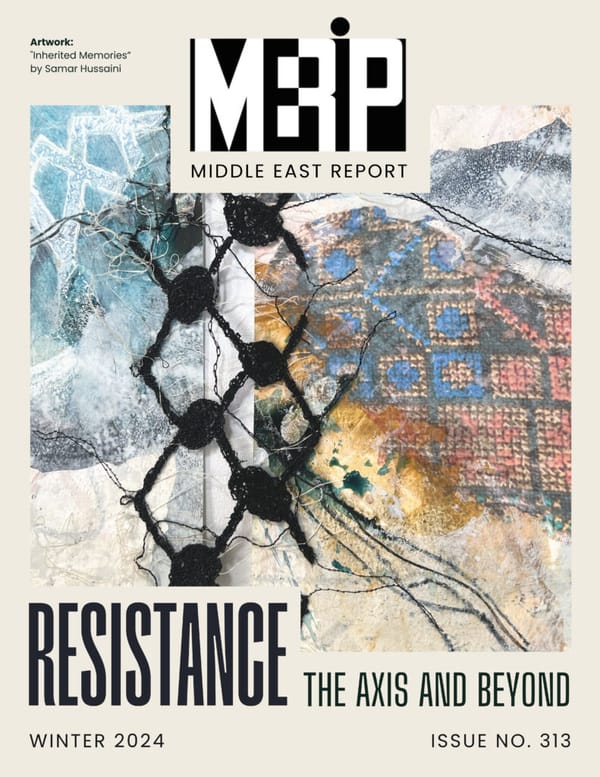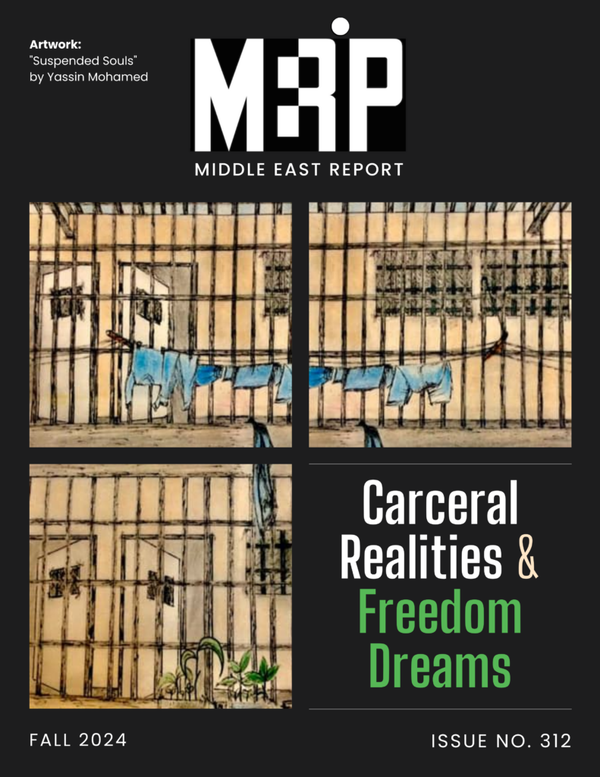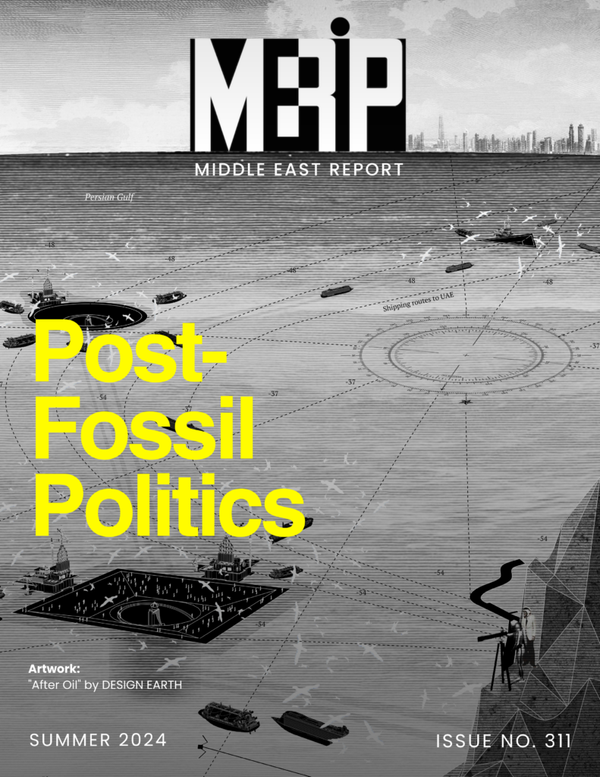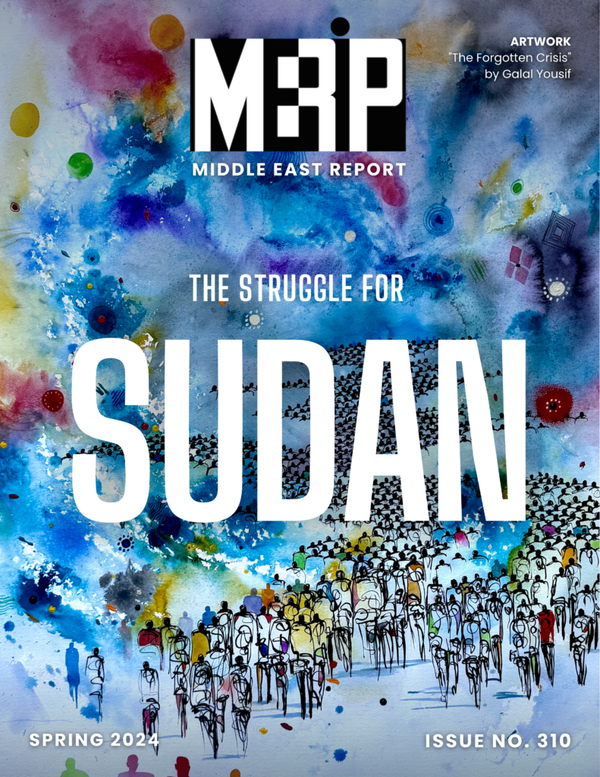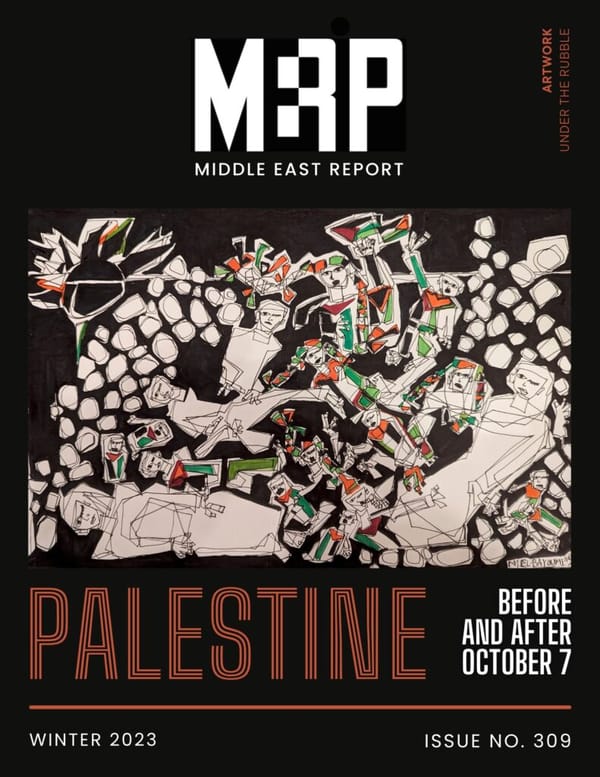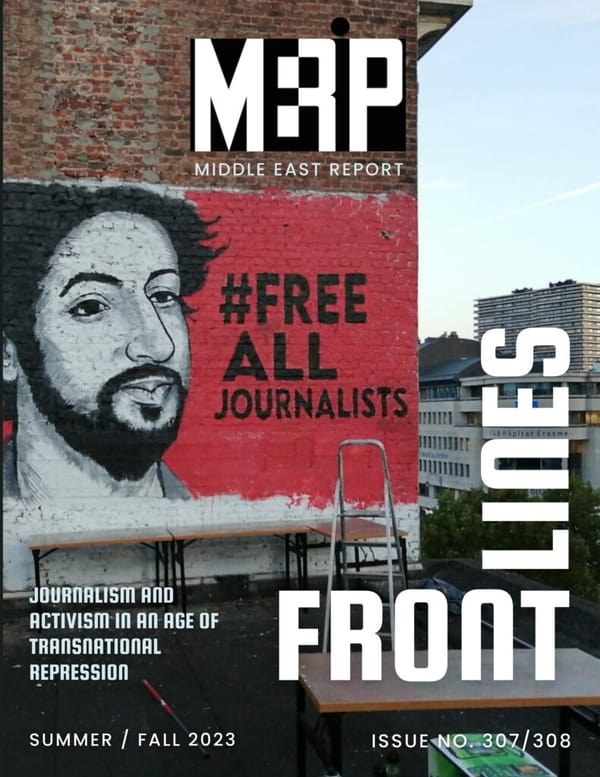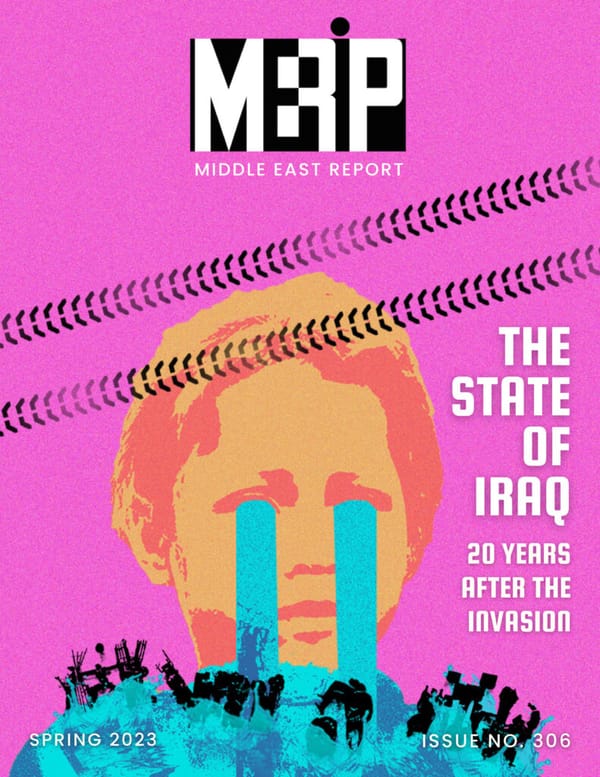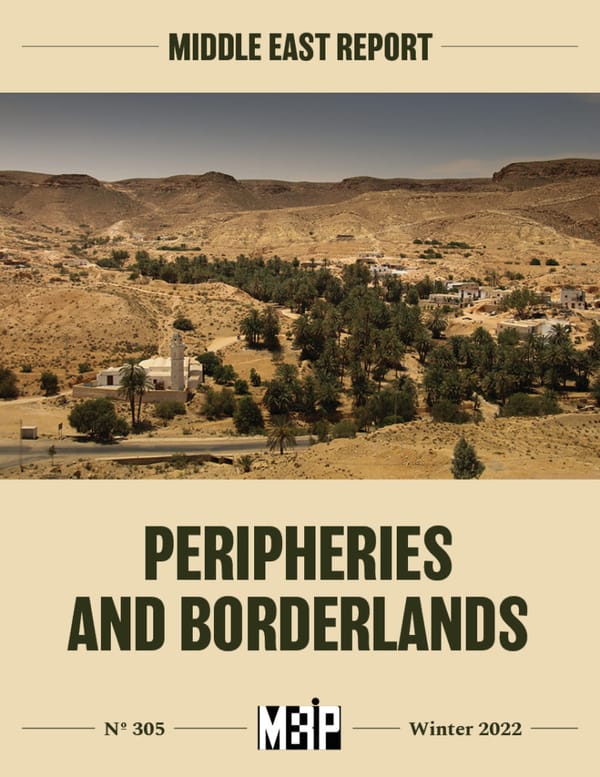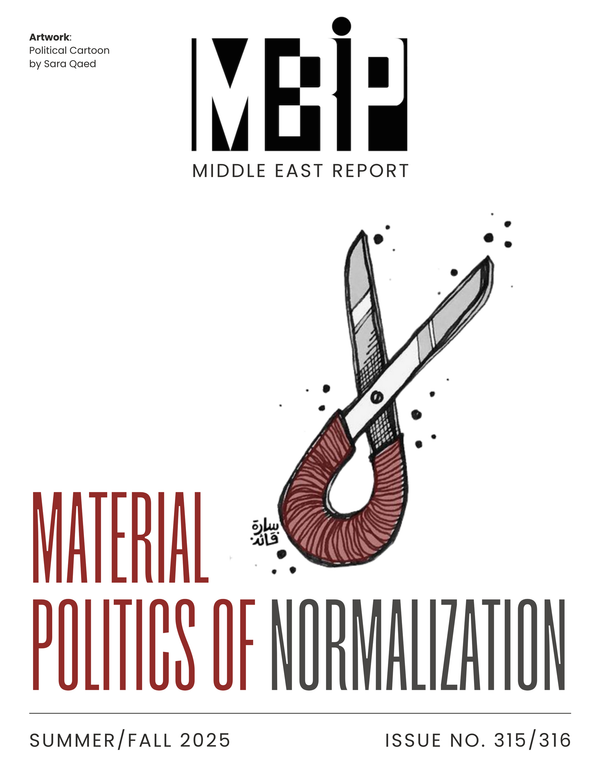
Latest Issue:
Material Politics of Normalization

MERIP Updates
The MERIP Podcast Episode 12: Honoring Joe Stork, Live in DC
Featuring Sarah Leah Whitson, Lisa Hajjar, Mouin Rabbani, Joel Beinin, Zachary Lockman, Rick Reinhard, Joan Mandell and Joost Hiltermann
James Ryan,
Lisa Hajjar,
Mouin Rabbani,
Joel Beinin,
Zachary Lockman,
Joan Mandell,
Joost Hiltermann
•
1 min read
Support MERIP on Giving Tuesday
Dear Friends and Comrades, Two weekends ago, friends and colleagues gathered in Washington, DC for the annual Middle East Studies Association conference, where we reflected on and honored the memory of our co-founder and longtime editor, Joe Stork, who passed away a little over a year ago. At the conference,The MERIP Podcast Episode 11: In the Archive with Beshara Doumani
Today we have a very special episode, part of a new occasional series that will highlight some of the truly great work MERIP has done over the last 50-plus years, all of which is free to read in our archive. In the first of this series, we’re featuring theStaff Changes at MERIP
Dear Friends and Comrades, This week has been full of exciting announcements about our new issue and website, and today I’m writing to share an important change to our masthead. Over the summer, our executive editor Katie Natanel rotated off our editorial team after 3 and a half years.
Current Analysis

'We Want to Breathe'—Dispatch from Gabes, Tunisia
A few weeks into the 2025 school year, in a middle school in Chott Essalem, Tunisia, students began to feel dizzy and light-headed and their throats tightened. Within minutes, they began collapsing, one after another. More mass asphyxiation events, as residents describe them, occurred throughout the month of September and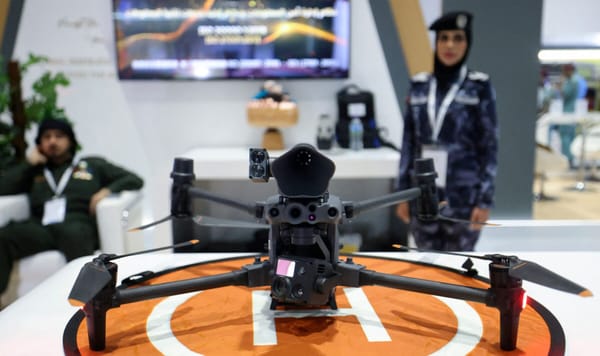
The Military-Industrial Backbone of Normalization
In February 2025, as international condemnation of Israel’s genocidal war on Gaza reached new heights, Abu Dhabi hosted the International Defence Exhibition and Conference. Over five days a record 34 Israeli arms companies, including giants like Israel Aerospace Industries and Rafael Advanced Defense Systems, showcased their latest wares alongside

Primers
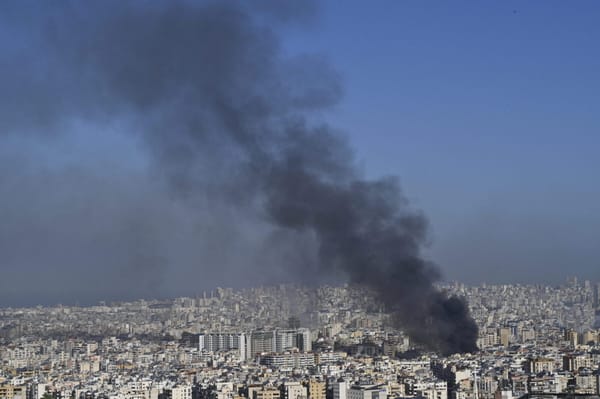
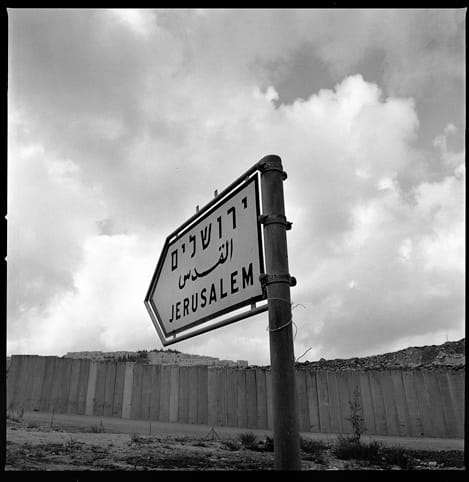
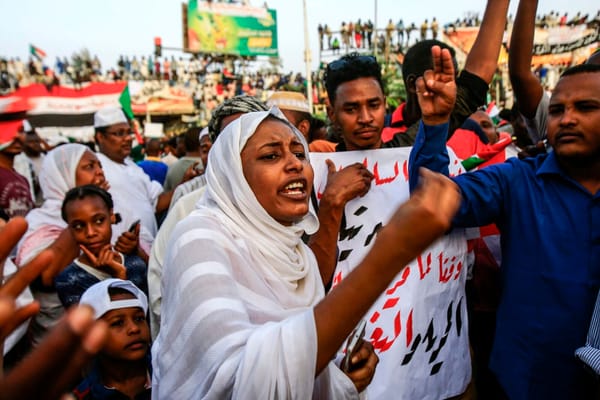

MERIP Updates
The MERIP Podcast Episode 12: Honoring Joe Stork, Live in DC
Featuring Sarah Leah Whitson, Lisa Hajjar, Mouin Rabbani, Joel Beinin, Zachary Lockman, Rick Reinhard, Joan Mandell and Joost Hiltermann
James Ryan,
Lisa Hajjar,
Mouin Rabbani,
Joel Beinin,
Zachary Lockman,
Joan Mandell,
Joost Hiltermann
•
1 min read
Support MERIP on Giving Tuesday
Dear Friends and Comrades, Two weekends ago, friends and colleagues gathered in Washington, DC for the annual Middle East Studies Association conference, where we reflected on and honored the memory of our co-founder and longtime editor, Joe Stork, who passed away a little over a year ago. At the conference,The MERIP Podcast Episode 11: In the Archive with Beshara Doumani
Today we have a very special episode, part of a new occasional series that will highlight some of the truly great work MERIP has done over the last 50-plus years, all of which is free to read in our archive. In the first of this series, we’re featuring theStaff Changes at MERIP
Dear Friends and Comrades, This week has been full of exciting announcements about our new issue and website, and today I’m writing to share an important change to our masthead. Over the summer, our executive editor Katie Natanel rotated off our editorial team after 3 and a half years.


